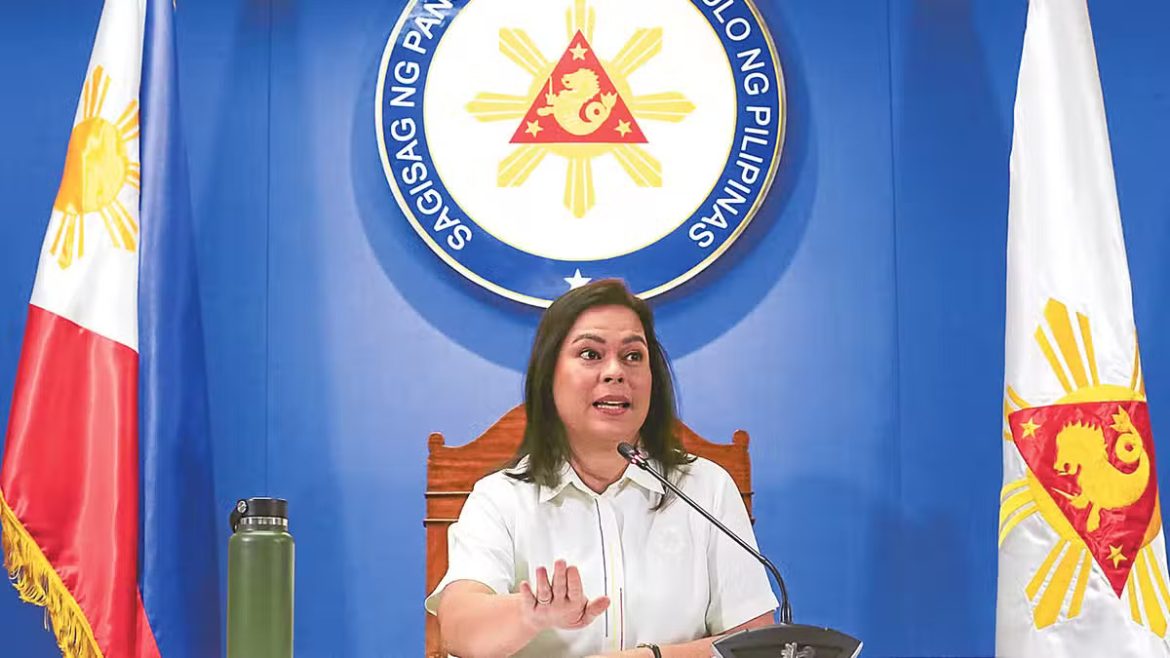In Manila, the Department of Justice (DOJ) has initiated a review to explore potential legal actions following recent remarks by Vice President Sara Duterte. Last week, Duterte made comments described as “disturbing” concerning former President Ferdinand Marcos. She suggested exhuming his remains and disposing of them in the West Philippine Sea.
Justice Secretary Jesus Crispin Remulla confirmed the DOJ’s interest in assessing the legal ramifications of Duterte’s remarks. Remulla highlighted the seriousness of the statement made by the Vice President, expressing concerns that such comments could have significant legal and diplomatic repercussions. The DOJ’s task is to determine whether the Vice President’s statements violate any laws or protocols.
Duterte’s comments have sparked widespread debate across the nation and drawn varied reactions from different sectors. Her remarks particularly focused on the legacy of the Marcos family, a topic that has been historically sensitive in the Philippines. The Marcos era, characterized by martial law and numerous human rights violations, remains a contentious chapter in the country’s history.
The exhumation of Marcos’ body carries symbolic weight. His burial at the Heroes’ Cemetery in 2016 was a move that divided public opinion. Critics argued that honoring Marcos in such a manner was an affront to victims of martial law, while supporters maintained it was a rightful acknowledgment of his place in history. Duterte’s comments have reignited these debates, putting a spotlight back on historical grievances.
Legal experts have weighed in on the Vice President’s remarks. Some have pointed out the potential implications under the country’s laws on incitement and respect for the deceased. The DOJ’s investigation will likely consider these aspects, evaluating whether the comments breached legal boundaries.
The political landscape in the Philippines is complex and often charged with historical tensions. Statements by public officials, especially those in high offices, are subject to public scrutiny and legal examination. Duterte’s position as Vice President adds a layer of complexity to the situation, as her words carry significant influence.
The reaction from Marcos’ family and supporters has been notably reserved. They have not issued formal statements in response to Duterte’s remarks. However, political analysts suggest that behind-the-scenes discussions are likely taking place among the key stakeholders. The Marcos family holds substantial political power and influence in the country, making their stance on the issue crucial.
Duterte’s remarks come at a time when the Philippines is navigating its foreign relations, especially with countries involved in the West Philippine Sea disputes. The mention of this region in her comments has diplomatic implications, potentially affecting the nation’s international relations stance. The DOJ’s assessment will need to consider the wider impact of these remarks on the country’s diplomatic engagements.

